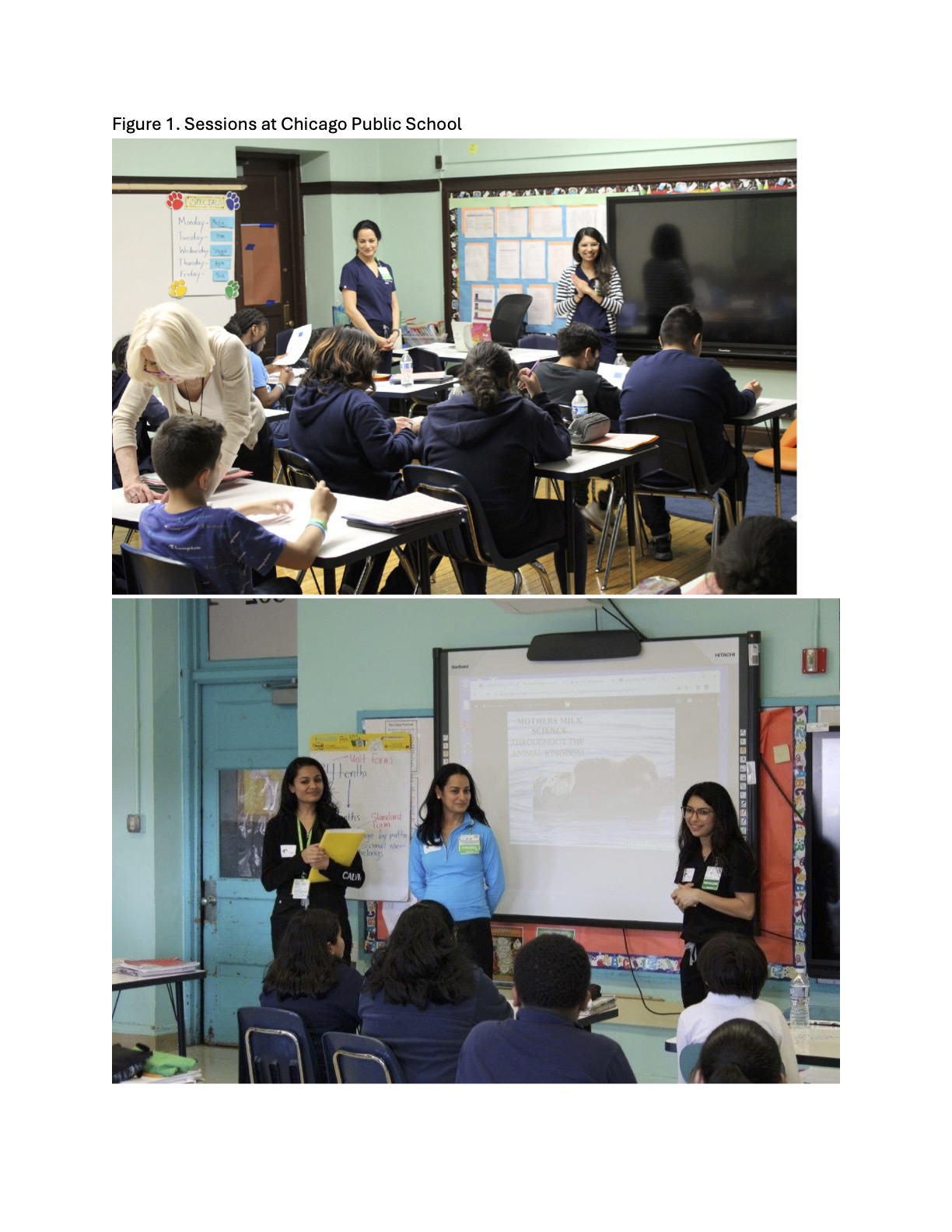Breastfeeding/Human Milk 3
Session: Breastfeeding/Human Milk 3
663 - Mother's Milk Through the Animal Kingdom: A Pilot Study of Targeted Mother's Milk Education in Minority 5th Grade Students
Saturday, April 26, 2025
2:30pm - 4:45pm HST
Publication Number: 663.5759
Suhagi Kadakia, Rush University Medical Center, Elmhurst, IL, United States; Sruti Uppuluri, Rush University Medical Center, Chicago, IL, United States; George Ziegler, Inova Children's Hospital, Vienna, VA, United States; Aloka L.. Patel, Rush University, Chicago, IL, United States
- SK
Suhagi Kadakia, MD (she/her/hers)
Assistant Professor
Rush University Medical Center
Elmhurst, Illinois, United States
Presenting Author(s)
Background: Despite the many benefits associated with breast milk (BM) feedings and initiatives to increase breastfeeding (BF) rates, there remain racial/ethnic disparities in BM feeding rates in the United States. This discrepancy may be partially attributed to differences in cultural acceptance of BF.
Objective: Our objective was to evaluate the impact of a BF education session, as a component of mammalian science, on 5th grade students’ BF knowledge and attitudes.
Design/Methods: This is a pilot study of primarily minority 5th grade students from Chicago public schools who underwent a 45-minute education session on BM science using mammals including humans as examples of BM feeding in nature. Questionnaires evaluating knowledge of animal BF, components of BM, human BF, and BF attitudes were completed prior to and immediately following the education session.
Results: BM Science education sessions were provided to three 5th grade classes over three days during June 2023-May 2024 at two Chicago public schools. Subject characteristics (n 70): male (56%), Hispanic (67%), non-Hispanic Black (25%). Following the education session, subjects showed statistically significant improvement in mammalian BF knowledge (figure 1). Subjects reported interest in learning about BF in general and at school with 76% subjects stating they would like to learn more about BM. BF attitude questions demonstrated improvement immediately post-session with 87% subjects stating that mothers should give BM to their baby.
Conclusion(s): This pilot study demonstrates that BF education is feasible in elementary school children and results in improvement in BF knowledge. BM education in pre-pubertal children is a potential strategy to address racial disparities through providing early exposure and encouraging acceptance of BF as the cultural norm.
Figure 1. Sessions at Chicago Public School

Pre/Post Education
.jpg)

